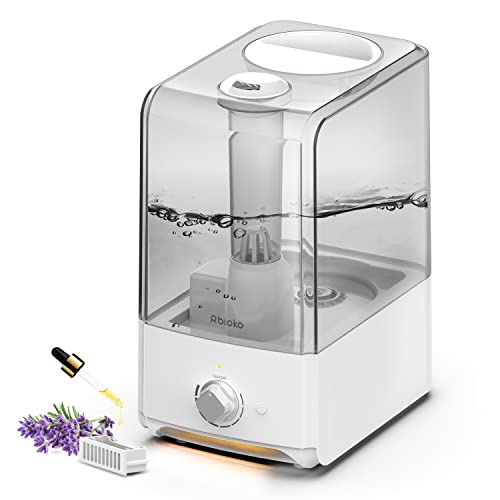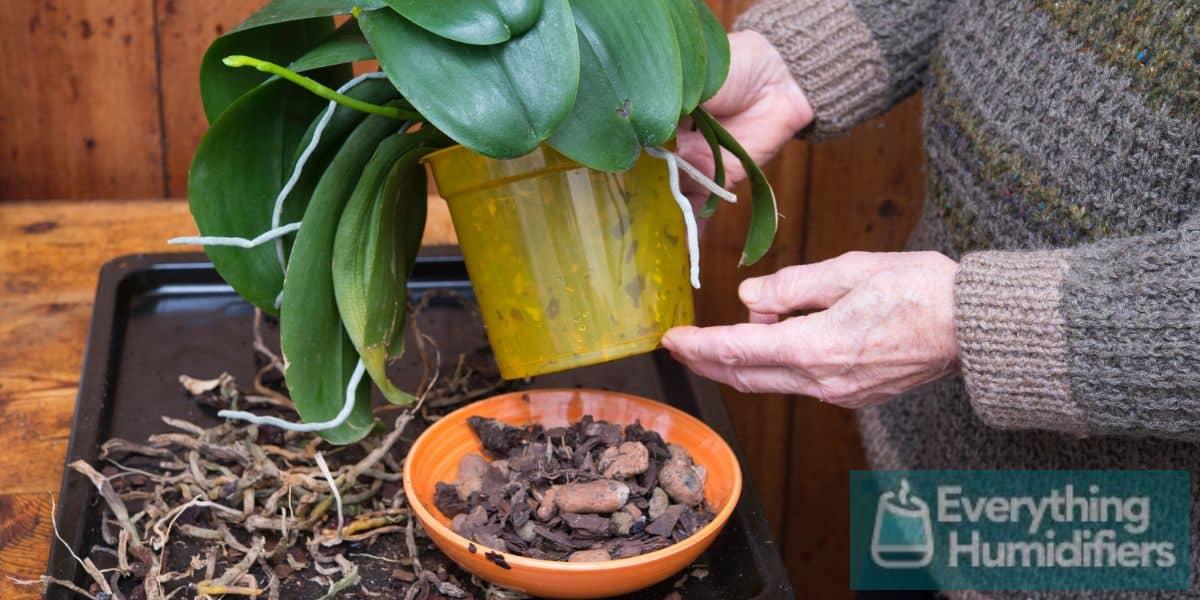If you are a home cheesemaker or are running a small cheese-making business, one challenge you have is aging and storing your cheese.
Some cheesemakers may be tempted to hand this process over to an affineur, a professional person who specializes in maturing cheeses.
Not everyone can afford this, so home cheesemakers usually age and store the cheese themselves. Having the perfect environment is vital to the cheese-making process.
Humidity levels for storing cheese range between 50% – 90%. Low humidity will cause the cheese to dry out and lose its flavor. Very high humidity will encourage the growth of mold. Maintaining consistent humidity levels is crucial to preserve the texture of the cheese and prevent spoilage.
Many factors affect cheese storage, including temperature, ventilation, light, and cross-contamination. Humidity, however, is one of the most important. Let’s look at what humidity is best for cheese and what to consider when storing your cheese.
What humidity is best for cheese?
Humidity levels for storing cheese can range from 50% to as high as 90% depending on the type of cheese. In general, soft and fresh cheeses require a higher humidity level to prevent them from drying out. Hard and aged cheeses require lower humidity to prevent mold growth.
Here are some example percentages from Refrigeration Design Technologies
To answer the question – What Humidity Should Cheese be Stored At?
You can see from the above table that the storage humidity for cheese is usually high. Even when they need ‘lower’ humidity, we are talking about well over 50% and nowhere near low humidity of 30%.
To learn more about moisture, read our article on Humidity, Friend or Foe?
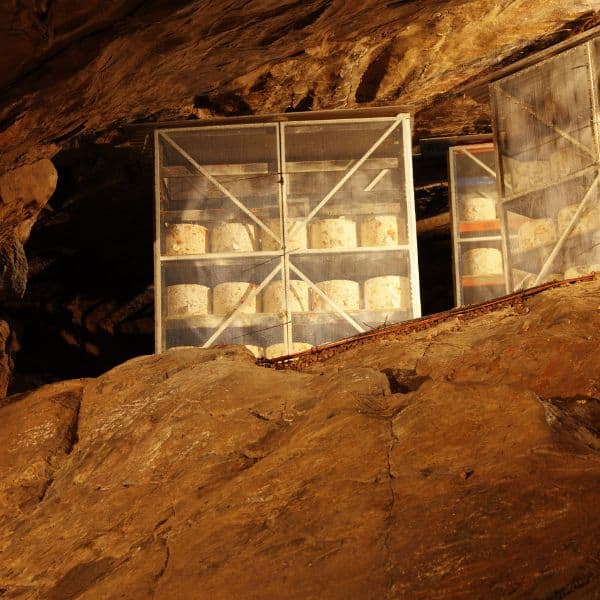
What is a cheese cave?
In times gone by, rock caves in the mountains offered the perfect conditions for aging and storing cheese. Only a few of us have access to caves nowadays! So, creating a cheese cave in your home is a great way to recreate these natural conditions.
The ‘cave’ can be an old refrigerator, a wine fridge or cellar, a small room, a closet, or even a large storage box you have insulated. The vital factor is that these spaces can be controlled regarding temperature, airflow, and humidity.
Installing a small cheese cave humidifier in your cheese cave will help you create the desired microclimate. To accurately measure the humidity in your cheese cave, you can purchase a small, inexpensive device called a hygrometer.
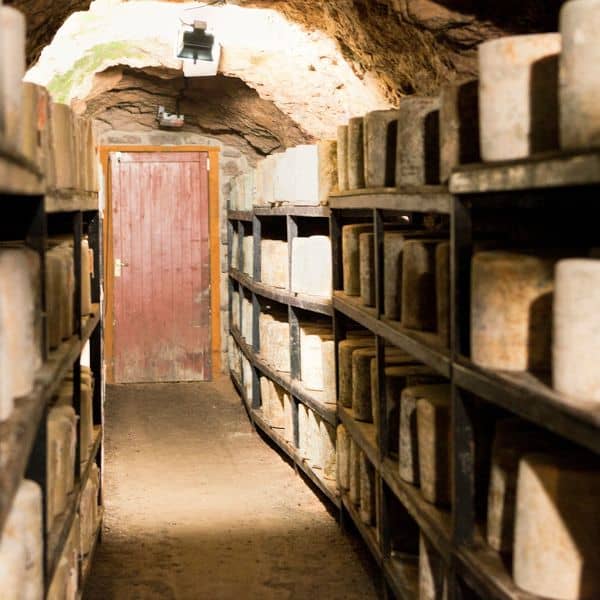
Clay Brick Humidifier
Another great way to maintain the correct humidity levels in your cheese cave is to purchase a clay brick humidifier.
This innovative device is a brick made of clay fired at the perfect temperature and porosity to provide consistent humidity levels.
Clay brick humidifiers can also be used to humidify tobacco, cigars and loose leaf tea and medical marijuana.
Submerge the brick in water for a few minutes, wipe off the excess water, and place it in your cheese cave. The water held in the brick evaporates and, as it does so, increases the humidity in the storage area.
Clay brick humidifiers are durable, long-lasting, and reusable. Easy to use and can be placed in the storage area. Without set-up procedures or electrical power, this may help if you need a minimal rise in humidity for a smaller space.
Cheese Grotto uses clay brick humidifiers in their cheese storage cabinets for more information take a look at their website.
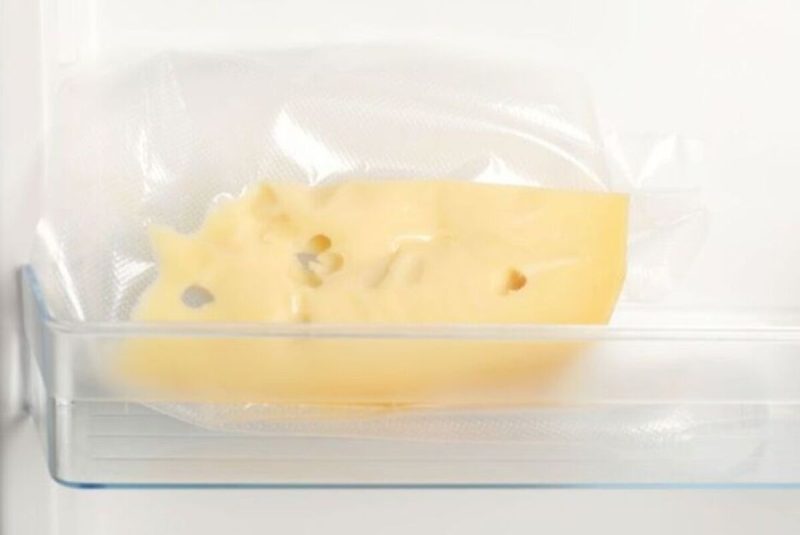
What is the best way to store cheese in the fridge?
If you are still experimenting and want to avoid spending money or time on a cheese cave, you can store cheese in your refrigerator with some careful planning.
The crisper drawer is a good space, provided you can empty it of other foods. Alternatively, if you have a wine fridge that’s not used! You could have a whole fridge dedicated to your cheese.
- Please clean it thoroughly to prevent contamination from bacteria and food particles.
- Stand a small glass half-filled with water in the corner to increase the humidity.
- Line the bottom of the drawer with paper towels.
- Then place your unwrapped cheese in the drawer.
- Monitor it daily to ensure that there is no growth of mold.
You can also store cheese in the main compartment. Wrap it tightly in a breathable material, such as wax paper, parchment paper, or cheesecloth, to prevent drying. Try to keep it away from strong-smelling foods, as it will absorb those aromas.
Airtight storage
A common question is – should cheese be stored airtight? Yes, you can keep it in a separate, airtight container.
Hard cheese that has been vacuum-sealed after cutting lasts longer than other methods, because less air can get to it.
Ensure you don’t mix different cheeses, as they can cross-contaminate one another. Label each container so that you know what is inside it.
Inside a refrigerator, the optimum temperature should be 33°F – 40°F, and a humidity level of 50% -75% for cheese storage.
It is essential to monitor the temperature and humidity levels regularly.
Do not put cheese in the freezer compartment of your refrigerator!
Freezing cheese is not a good idea. It causes the moisture in the cheese to expand and freeze, which changes the texture to become dry, crumbly, and grainy.
Some cheese releases oil when frozen, producing an unappealing appearance and texture. Reheating frozen cheese is not recommended as it causes the cheese to become rubbery and lose its flavor and texture.
How long does it take for the cheese to mold in the fridge?
Mold can be good for cheese, as it helps in aging and maturing. The mold you encourage to form during the cheese aging process to create flavor is good, but the mold that forms by cheese being too wet will not benefit your cheese’s quality.
After opening your cheese, most soft cheeses can be stored for at least 7 days.
Hard cheeses last longer and can be stored for 3 to 4 weeks. To learn more about safe times for storing cheese, here is a detailed article from Healthline.
Can cheese be kept in a cupboard?
Cheese can be kept in a cupboard, but it is not ideal for long-term storage. Unless you have converted your cupboard into a cheese cave, the conditions inside won’t be as controlled as required.
The temperature and humidity in a cupboard can vary greatly, depending on where it is located in your home. If you need to store cheese in a cupboard briefly, wrap it tightly in a breathable material, such as wax paper, parchment paper, or cheesecloth, to prevent it from drying out.
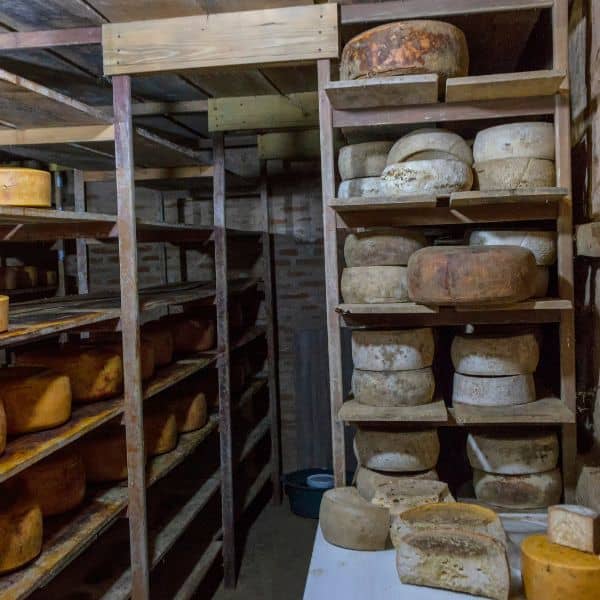
Can cheese be stored at room temperature?
Cheese can last at room temperature for a limited time. Hard cheese generally lasts longer than soft cheese. If your cheese has been stored at room temperature for more than a few days, check it for signs of mold before eating it.








